0
Publication
Community:
Aug 3, 2023
A Community Health Worker Program Development & Toolkit for Affordable Housing and Community Development Organizations
Authored by: NeighborWorks America
Topics: Health, Healthy homes, Housing
 Shared by Camille Anoll-Hunter
Shared by Camille Anoll-Hunter
Camille Anoll-Hunter posted a
on Aug 3, 2023
A Community Health Worker Program Development & Toolkit for Affordable Housing and Community Development Organizations
0
Interactive
Community:
May 24, 2023
Ever wondered what health centers are close to your public housing property? Check out this map to learn more.
Authored by:
Topics: Health, Housing
 Shared by Camille Anoll-Hunter
Shared by Camille Anoll-Hunter
Camille Anoll-Hunter posted a
on May 24, 2023
Ever wondered what health centers are close to your public housing property? Check out this map to learn more.
0
Publication
Community:
Nov 3, 2022
In the newly released Stanford Social Innovation Review article, co-authors Jessica Mulcahy, Success Measures at NeighborWorks America; Vedette R. Gavin, Verge Impact Partners; and Stacey Barbas and Kate McLaughlin, The Kresge Foundation discuss their collaborative work on a three-year developmental evaluation to learn about the strategies and approaches grantees are using to advance health equity through housing. This article is part of the series “Collaboration for Housing Justice” sponsored by Funders for Housing and Opportunity to mark their fifth anniversary.
Authored by: Stacey Barbas, Kate McLaughlin, Jessica Mulcahy & Vedette R. Gavin, Stanford Social Innovation Review
Topics: Community development, Health, Housing, Place-based, Racial inequalities, Research
 Shared by Camille Anoll-Hunter
Shared by Camille Anoll-Hunter
Camille Anoll-Hunter posted a
on Dec 15, 2022
Stacey Barbas, Kate McLaughlin, Jessica Mulcahy & Vedette R. Gavin, Stanford Social Innovation Review
In the newly released Stanford Social Innovation Review article, co-authors Jessica Mulcahy, Success Measures at NeighborWorks America; Vedette R.
0
Video
Community:
Jun 17, 2022
The Vancouver Housing Authority collaborated with a Federally Qualified Health Center and a homeless crisis response system to develop a network of scattered-site and site-based supportive housing. This moderated discussion will cover how VHA paired Housing Choice Vouchers and public housing with a Medicaid-funded supportive housing benefit to serve people identified by the community’s Coordinated Entry as needing supportive housing. Speakers will also discuss the challenges faced through the process, model adjustments made, and evaluation of the work through matching housing data and Medicaid utilization data.
Authored by:
Topics: Advocacy, CLPHA, Data sharing, Family engagement, Health, Healthy homes, Homelessness, Housing, Legislation & Policy, Low-income, Research, Stability, Sustainability
 Shared by Karina George
Shared by Karina George
Karina George posted a
on Jun 17, 2022
The Vancouver Housing Authority collaborated with a Federally Qualified Health Center and a homeless crisis response system to develop a network of scattered-site and site-based supportive housing.
0
Video
Community:
Jun 17, 2022
The Administration for Community Living’s Aging and Disability Network is a multifaceted service infrastructure for older adults and people with disabilities so they can find housing and obtain services like chore assistance, delivered meals, and transportation. By partnering with this community infrastructure, PHAs can improve voucher utilization and leverage and align resources so older adults, people with disabilities, and people experiencing homelessness —all priority populations for federal housing assistance—can obtain supportive services needed to attain housing stability, optimize well-being, and avoid homelessness and costly institutional care. Join this session to learn about PHA partnerships with this infrastructure, discuss the dynamics of cross-sector partnerships in community-driven approaches, and discover opportunities available through the Housing and
Services Resource Center.
Authored by:
Topics: Advocacy, Community development, Disabilities, Health, Housing, Partnerships, Research, Seniors, Supportive housing, Sustainability
 Shared by Karina George
Shared by Karina George
Karina George posted a
on Jun 17, 2022
The Administration for Community Living’s Aging and Disability Network is a multifaceted service infrastructure for older adults and people with disabilities so they can find housing and obtain services like chore assistance, delivered meals, and transportation.
0
Video
Community:
Jun 17, 2022
NYC was an epicenter at the start of the COVID-19 pandemic, and the city’s population density continues to be a driver of the deep, ongoing public health crisis. As NYC’s largest residential landlord, The New York City Housing Authority (NYCHA) unsurprisingly works with a number of health partners to bring information and services to residents, but the Authority hasn’t stopped there. Learn how NYCHA has leveraged partnerships at the intersection of health, housing, and economic opportunity to expand pathways for residents into health training and jobs during the past two years, and what’s on the horizon for the next phase of this exciting work.
Authored by:
Topics: Advocacy, Asset building, CLPHA, Health, Healthy homes, Housing
 Shared by Karina George
Shared by Karina George
Karina George posted a
on Jun 17, 2022
NYC was an epicenter at the start of the COVID-19 pandemic, and the city’s population density continues to be a driver of the deep, ongoing public health crisis.
0
Video
Community:
Jun 17, 2022
The Low Income Investment Fund (LIIF) will moderate a unique cross-sector panel of housing and early care and education (ECE) experts on strategies and best practices for co-locating ECE facilities within affordable housing developments. Discussion of specific financing techniques and site design considerations from existing co-located facilities will provide attendees lessons on policy and programmatic changes needed to incentivize co-location. Panelists include innovators in affordable housing development, government and public sectors, early care and education operations, and community development finance.
Authored by:
Topics: Advocacy, Broadband, Child welfare, CLPHA, Family engagement, Food insecurity, Health, Housing, Legislation & Policy, Low-income, Nutrition, School-readiness, Supportive housing, Sustainability
 Shared by Karina George
Shared by Karina George
Karina George posted a
on Jun 17, 2022
The Low Income Investment Fund (LIIF) will moderate a unique cross-sector panel of housing and early care and education (ECE) experts on strategies and best practices for co-locating ECE facilities within affordable housing developments.
0
Video
Community:
May 18, 2021
Roundtable: Cross-Sector Efforts on COVID-19.
More than a year into a global pandemic, we continue to see disparities in infections, access to care, and economic supports, with an unequal burden on low-income and communities of color. This roundtable will discuss perspectives from housing, health, and policy for what we have seen and what may be to come, as well as ideas we may enact to create more permanent solutions, in addition to addressing current crises.
Authored by: CLPHA
Topics: CLPHA, Community development, COVID-19, Education, Health, Housing, Partnerships
 Shared by Housing Is
Shared by Housing Is
Housing Is posted a
on May 18, 2021
Roundtable: Cross-Sector Efforts on COVID-19.
More than a year into a global pandemic, we continue to see disparities in infections, access to care, and economic supports, with an unequal burden on low-income and communities of color.
0
Video
Community:
Jun 12, 2020
Community health workers (CHW) can be vital to ensuring individuals and communities accessing the full range of healthcare and social services they need. Housing authorities and their health partners are increasingly looking for ways to train and deploy CHWs in their communities to help improve health outcomes, improve satisfaction with care, lower healthcare costs, and minimize health disparities. This session will explore several PHAs training residents to become CHWs. Participants will learn of the deliberative process undertaken to design proofs of concept that feature cross-sector partnerships, metrics determination, data collection and sharing approaches, evaluation planning, anticipated outcomes and strategies for replicability.
Authored by: CLPHA
Topics: Health, Housing, Summit 2020
 Shared by Steve Lucas
Shared by Steve Lucas
Steve Lucas posted a
on Jun 12, 2020
Community health workers (CHW) can be vital to ensuring individuals and communities accessing the full range of healthcare and social services they need.
0
Video
Community:
Jun 12, 2020
Following our 2020 Summit Keynote Speaker Congresswoman Donna Shalala, we will hear from a roundtable comprised of a national Medicaid payer, large housing authority, and essential health care service provider about improving outcomes through innovative collaboration between the health and housing sectors. As a Medicaid managed care organization, UnitedHealthcare Community & State has forged partnerships with public housing authorities (PHAs) and federally qualified health centers (FQHCs) to address the social determinants of health of those individuals accessing the Medicaid system. UnitedHealthcare will be joined in this conversation by the Housing Authority of the City of Austin and Bread for the City (an FQHC in Washington, DC) to discuss the importance of including all of these partners at the table. Especially in light of the COVID-19 pandemic, which has placed public health and social inequities front and center, we are reminded of the importance of partnerships with an “all hands on deck” approach to produce results.
Authored by: CLPHA
Topics: Health, Housing, Summit 2020
 Shared by Steve Lucas
Shared by Steve Lucas
Steve Lucas posted a
on Jun 12, 2020
Following our 2020 Summit Keynote Speaker Congresswoman Donna Shalala, we will hear from a roundtable comprised of a national Medicaid payer, large housing authority, and essential health care service provider about improving outcomes through innovative collaboration between the health and housing s
0
Video
Community:
Jun 12, 2020
Housing providers and public health experts share insights from building cross-sector health and housing partnerships. King County Housing Authority, Seattle Housing Authority, and Public Health - Seattle & King County have integrated housing data with Medicaid and Medicare data to better understand resident health needs and inform health initiatives. Leveraging this linked dataset, Dr. Craig Pollack is investigating the effects of receiving housing assistance on health outcomes. Vancouver Housing Authority is part of the Health and Housing Innovation Partnership, which aims to increase housing options for people with complex behavioral and physical health conditions and to better integrate health care services with the housing. Yakima Housing Authority recently became a Supported Employment provider under a new Washington State Medicaid Program, requiring the agency to become more connected to the state’s Medicaid system.
Authored by: CLPHA
Topics: Health, Housing, Summit 2020
 Shared by Steve Lucas
Shared by Steve Lucas
Steve Lucas posted a
on Jun 12, 2020
Housing providers and public health experts share insights from building cross-sector health and housing partnerships.
0
Video
Community:
Jun 12, 2020
COVID-19 is disproportionately impacting the health of low income housing residents and minority communities. Those who have symptoms of COVID-19 may not have the knowledge and resources to prevent the spread of infection, to seek appropriate healthcare, and to maintain quarantine. Lack of experience with telemedicine and lack of home blood pressure and glucose monitoring devices will result in worsening chronic disease health outcomes. Furthermore, the increased financial and emotional stress during the COVID-19 epidemic may result in increased need for mental health support.
The Bringing Health Home (BHH) Program, a collaboration between the Housing Authority of the City of Austin and the University of Texas Dell Medical School and funding provided by the St. David's Foundation, has trained and hired residents as state-certified Community Health Workers (CHW) to conduct virtual outreach to their neighbors at the largest public housing community to assess and address needs in the context of COVID-19.
Using CDC guidelines, the CHWs assess their peers over the phone for COVID-19 symptoms, reinforce preventative measures, link them to testing and medical care, when indicated, and connect them to other available resources, as needed. With this support, it has been possible for BHH residents with COVID-19 to maintain self-isolation and minimize transmission. The BHH team will share the work they are doing to prevent health disparities, minimize COVID-19 deaths, contain the virus, and protect the public welfare by supporting COVID-19 positive households with customized relief packages and symptom monitoring as they remain under quarantine.
Authored by: CLPHA
Topics: Health, Housing, Seniors, Summit 2020
 Shared by Steve Lucas
Shared by Steve Lucas
Steve Lucas posted a
on Jun 12, 2020
COVID-19 is disproportionately impacting the health of low income housing residents and minority communities. Those who have symptoms of COVID-19 may not have the knowledge and resources to prevent the spread of infection, to seek appropriate healthcare, and to maintain quarantine.
0
Video
Community:
Jun 12, 2020
June 4-5, Hosted Virtually via Zoom | Opening remarks by CLPHA President Stephen Norman and CLPHA Executive Director Sunia Zaterman followed by a roundtable discussion featuring voices from the housing, health, and education sectors. We kicked off the Summit with a Plenary Roundtable (starting at 20:53): Cross-Sector Crisis Response -- What We Are Learning About Cross-Sector Collaboration from COVID-19. About the panel: Partnerships have always been critical to improving life outcomes for low-income individuals and families. The global coronavirus pandemic has highlighted how crucial these partnerships are and how fractured our safety net systems remain. The health, economic, and educational consequences of COVID-19 have further imperiled already vulnerable people who face new and worsening challenges. Collaboration at the intersection of housing, education, and public health has been key to effective community responses to the pandemic. This roundtable will discuss how COVID-19 has compelled organizations to work differently to serve those in need and what lasting changes we can anticipate across sectors in the coming months and years. Panelists will specifically address the issues of out-of-school time, public health, connectivity, and social isolation for low-income residents.
Authored by: CLPHA
Topics: Education, Health, Housing, Summit 2020
 Shared by Steve Lucas
Shared by Steve Lucas
Steve Lucas posted a
on Jun 12, 2020
June 4-5, Hosted Virtually via Zoom | Opening remarks by CLPHA President Stephen Norman and CLPHA Executive Director Sunia Zaterman followed by a roundtable discussion featuring voices from the housing, health, and education sectors.
0
Video
Community:
Jun 12, 2020
June 4-5, 2020, Hosted Virtually via Zoom
Authored by: CLPHA
Topics: Funding, Health, Housing, Medicaid / Medicare, Summit 2020
 Shared by Steve Lucas
Shared by Steve Lucas
Steve Lucas posted a
on Jun 12, 2020
June 4-5, 2020, Hosted Virtually via Zoom
0
Publication
Community:
Jun 12, 2019
Zoning rules dictate more than just how we can use and build on land. They also shape our communities and our lives. Land use laws determine where we can find housing, schools, and parks—and who has access to them.
Authored by: Maya Brennan, Emily Peiffer, and Kimberly Burrowes for How Housing Matters, The Urban Institute
Topics: Health, Housing, Legislation & Policy, Racial inequalities
 Shared by Housing Is
Shared by Housing Is
Housing Is posted a
on Jun 13, 2019
Maya Brennan, Emily Peiffer, and Kimberly Burrowes for How Housing Matters, The Urban Institute
Zoning rules dictate more than just how we can use and build on land. They also shape our communities and our lives. Land use laws determine where we can find housing, schools, and parks—and who has access to them.
0
Video
Community:
May 24, 2019
With ever-growing interest in the intersection between housing and health, researchers are evaluating the impact of cross-sector interventions. This session will bring together researchers to share insights from their work relevant to practitioners and policymakers.
Authored by: Housing Is, CLPHA
Topics: CLPHA, Health, Homelessness, Housing, Low-income, Partnerships, Research, Seniors
 Shared by Housing Is
Shared by Housing Is
Housing Is posted a
on May 24, 2019
With ever-growing interest in the intersection between housing and health, researchers are evaluating the impact of cross-sector interventions. This session will bring together researchers to share insights from their work relevant to practitioners and policymakers.
0
Video
Community:
May 24, 2019
Dr. Camara Jones, a Senior Fellow at Morehouse School of Medicine and a past president of the American Public Health Association, will discuss systemic, historical inequities that constrict the social safety net and ways cross-sector collaboration can help improve health outcomes, educational attainment, and housing stability.
Authored by: Housing Is, CLPHA
Topics: Health, Housing, Racial inequalities, Research
 Shared by Housing Is
Shared by Housing Is
Housing Is posted a
on May 24, 2019
0
Video
Community:
May 24, 2019
Building Internal PHA Capacity for Cross-Sector Partnerships: How to creatively expand and enhance internal capacity to support cross-sector partnerships.
Authored by: Housing Is, CLPHA
Topics: CLPHA, Education, Health, Housing, Partnerships
 Shared by Housing Is
Shared by Housing Is
Housing Is posted a
on May 24, 2019
Building Internal PHA Capacity for Cross-Sector Partnerships: How to creatively expand and enhance internal capacity to support cross-sector partnerships.
0
Publication
Community:
May 20, 2019
African-Americans are three times more likely to die from asthma as whites. In Philadelphia and elsewhere, how can outcomes improve with changes to housing quality and pollution control?
Authored by: Sophia Newman for Next City
Topics: Asthma, Health, Housing, Low-income, Racial inequalities
 Shared by Housing Is
Shared by Housing Is
Housing Is posted a
on May 23, 2019
Sophia Newman for Next City
African-Americans are three times more likely to die from asthma as whites. In Philadelphia and elsewhere, how can outcomes improve with changes to housing quality and pollution control?
0
Publication
Community:
May 22, 2019
In May 2018, Kaiser Permanente, the largest private integrated care system in the US, announced that it would invest $200 million through its Thriving Communities Fund to address the affordable housing crisis in California’s Bay Area. Then in 2019, Kaiser announced that it used the fund to purchase an apartment building in a diverse but quickly gentrifying neighborhood in Oakland with the express purpose of making repairs and upgrades to improve health in the building and to ensure affordability to current residents. If Kaiser wanted to improve health, why wouldn’t it focus solely on housing upgrades, which research shows can produce positive health outcomes (PDF)? Why would it include maintaining affordability in its mandate?
Authored by: Martha Fedorowicz for How Housing Matters, The Urban Institute
Topics: Health, Housing, Low-income
 Shared by Housing Is
Shared by Housing Is
Housing Is posted a
on May 23, 2019
Martha Fedorowicz for How Housing Matters, The Urban Institute
In May 2018, Kaiser Permanente, the largest private integrated care system in the US, announced that it would invest $200 million through its Thriving Communities Fund to address the affordable housing crisis in California’s Bay Area.
0
Publication
Community:
Moving Health Care Upstream (MHCU) is based on the belief that health systems can address persistent and costly health inequities by moving “upstream”—beyond the walls of hospitals and clinics and into the communities, collaborating with community-based organizations to address the root causes of disease. The various areas of work within MHCU share a common focus-supporting hospitals and community stakeholders in testing and spreading strategies to move upstream, and sharing “what works” to inform the field and accelerate the upstream movement in the field as a whole. Policy Learning Labs are one example of MHCU’s work to spread knowledge and accelerate action in the field.
Authored by: Nemours, Moving Health Care Upstream, and Change Lab Solutions
Topics: Child welfare, Early childhood, Food insecurity, Green, Health, Housing, Legislation & Policy, Nutrition, Partnerships, Youth
 Shared by Housing Is
Shared by Housing Is
Housing Is posted a
on May 1, 2019
Nemours, Moving Health Care Upstream, and Change Lab Solutions
Moving Health Care Upstream (MHCU) is based on the belief that health systems can address persistent and costly health inequities by moving “upstream”—beyond the walls of hospitals and clinics and into the communities, collaborating with community-based organizations to address the root causes of di
0
Publication
Community:
Apr 24, 2019
Are you a Pennsylvanian without a high school diploma? Then sign up with AmeriHealth Caritas for Medicaid and the plan will help you get your GED. Having trouble getting a job in Ohio? If you are enrolled in CareSource, the Life Services JobConnect in CareSource’s managed care organization (MCO) will arrange job coaching and other employment services at no cost. These are not examples of corporate philanthropy. Rather, they reflect a growing recognition in the health care sector, especially among managed care organizations, that good health—and achieving lower medical costs—requires a focus on the nonmedical factors known as social determinants that affect health and well-being.
Authored by: Stuart Butler for news@Jama
Topics: Education, Food insecurity, Health, Housing, Low-income, Nutrition, Research
 Shared by Housing Is
Shared by Housing Is
Housing Is posted a
on Apr 25, 2019
Stuart Butler for news@Jama
Are you a Pennsylvanian without a high school diploma? Then sign up with AmeriHealth Caritas for Medicaid and the plan will help you get your GED. Having trouble getting a job in Ohio?
0
Publication
Community:
Apr 25, 2019
Adequate, safe, and affordable housing is one of our most basic needs. But in the US, access to housing is not guaranteed. Demand for affordable housing is growing, especially as housing costs increase beyond wage growth in many communities. Hospitals and health systems are stepping in to help fill this gap. Because of their mission orientation, the importance of stable housing on health outcomes, and policy changes initiated by the Affordable Care Act, hospitals and health systems are increasingly investing in and supporting the creation of affordable housing in their communities.
Authored by: Martha Fedorowicz and Kathryn Reynolds for How Housing Matters, The Urban Institute
Topics: Affordable Care Act, Community development, Health, Housing, Low-income
 Shared by Housing Is
Shared by Housing Is
Housing Is posted a
on Apr 25, 2019
Martha Fedorowicz and Kathryn Reynolds for How Housing Matters, The Urban Institute
Adequate, safe, and affordable housing is one of our most basic needs. But in the US, access to housing is not guaranteed. Demand for affordable housing is growing, especially as housing costs increase beyond wage growth in many communities.
0
Publication
Community:
The role of public and nonprofit hospitals and hospital systems in supportive housing is not an obvious one at first glance. Traditionally, the role of nonprofit and public hospitals has been to provide primary healthcare and additional health services to the public, often to select “catchment” areas or neighborhoods. The extent of these institutions’ role in housing was limited to either providing a) short-term inpatient beds for medical or treatment services, or b) residences for nurses or other hospital staff. Why then are more and more nonprofit and public hospitals becoming involved in not only creating, but also providing and managing supportive housing?
Authored by: Richard Cho for CSH
Topics: Health, Homelessness, Housing, Partnerships, Research, Supportive housing
 Shared by Housing Is
Shared by Housing Is
Housing Is posted a
on Apr 17, 2019
The role of public and nonprofit hospitals and hospital systems in supportive housing is not an obvious one at first glance.
0
Publication
Community:
April is National Child Abuse Prevention Month, an opportunity to recognize the importance and raise awareness of our roles —families, communities, service providers, researchers, policy makers and others— in working together to prevent child abuse and neglect and to promote the overall social, physical, and emotional well-being of children and their families.
Authored by: Jasmine Hayes for CSH
Topics: Child welfare, Family engagement, Health, Homelessness, Housing, Safety
 Shared by Housing Is
Shared by Housing Is
Housing Is posted a
on Apr 17, 2019
April is National Child Abuse Prevention Month, an opportunity to recognize the importance and raise awareness of our roles —families, communities, service providers, researchers, policy makers and others— in working together to prevent child abuse and neglect and to promote the overall social, phys
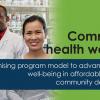
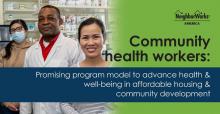
 Shared by Camille Anoll-Hunter
on Aug 3, 2023
Shared by Camille Anoll-Hunter
on Aug 3, 2023

 Shared by Camille Anoll-Hunter
on May 24, 2023
Shared by Camille Anoll-Hunter
on May 24, 2023

 Shared by Camille Anoll-Hunter
on Dec 15, 2022
Shared by Camille Anoll-Hunter
on Dec 15, 2022

 Shared by Karina George
on Jun 17, 2022
Shared by Karina George
on Jun 17, 2022
 Shared by Karina George
on Jun 17, 2022
Shared by Karina George
on Jun 17, 2022
 Shared by Karina George
on Jun 17, 2022
Shared by Karina George
on Jun 17, 2022
 Shared by Karina George
on Jun 17, 2022
Shared by Karina George
on Jun 17, 2022
 Shared by Housing Is
on May 18, 2021
Shared by Housing Is
on May 18, 2021
 Shared by Steve Lucas
on Jun 12, 2020
Shared by Steve Lucas
on Jun 12, 2020
 Shared by Steve Lucas
on Jun 12, 2020
Shared by Steve Lucas
on Jun 12, 2020
 Shared by Steve Lucas
on Jun 12, 2020
Shared by Steve Lucas
on Jun 12, 2020
 Shared by Steve Lucas
on Jun 12, 2020
Shared by Steve Lucas
on Jun 12, 2020
 Shared by Steve Lucas
on Jun 12, 2020
Shared by Steve Lucas
on Jun 12, 2020
 Shared by Steve Lucas
on Jun 12, 2020
Shared by Steve Lucas
on Jun 12, 2020
 Shared by Housing Is
on Jun 13, 2019
Shared by Housing Is
on Jun 13, 2019
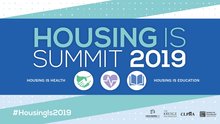
 Shared by Housing Is
on May 24, 2019
Shared by Housing Is
on May 24, 2019


 Shared by Housing Is
on May 24, 2019
Shared by Housing Is
on May 24, 2019
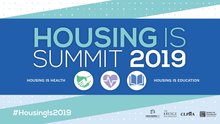
 Shared by Housing Is
on May 24, 2019
Shared by Housing Is
on May 24, 2019

 Shared by Housing Is
on May 23, 2019
Shared by Housing Is
on May 23, 2019
 Shared by Housing Is
on May 23, 2019
Shared by Housing Is
on May 23, 2019
 Shared by Housing Is
on May 1, 2019
Shared by Housing Is
on May 1, 2019
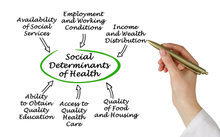
 Shared by Housing Is
on Apr 25, 2019
Shared by Housing Is
on Apr 25, 2019
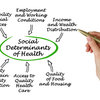
 Shared by Housing Is
on Apr 25, 2019
Shared by Housing Is
on Apr 25, 2019
 Shared by Housing Is
on Apr 17, 2019
Shared by Housing Is
on Apr 17, 2019

 Shared by Housing Is
on Apr 17, 2019
Shared by Housing Is
on Apr 17, 2019
